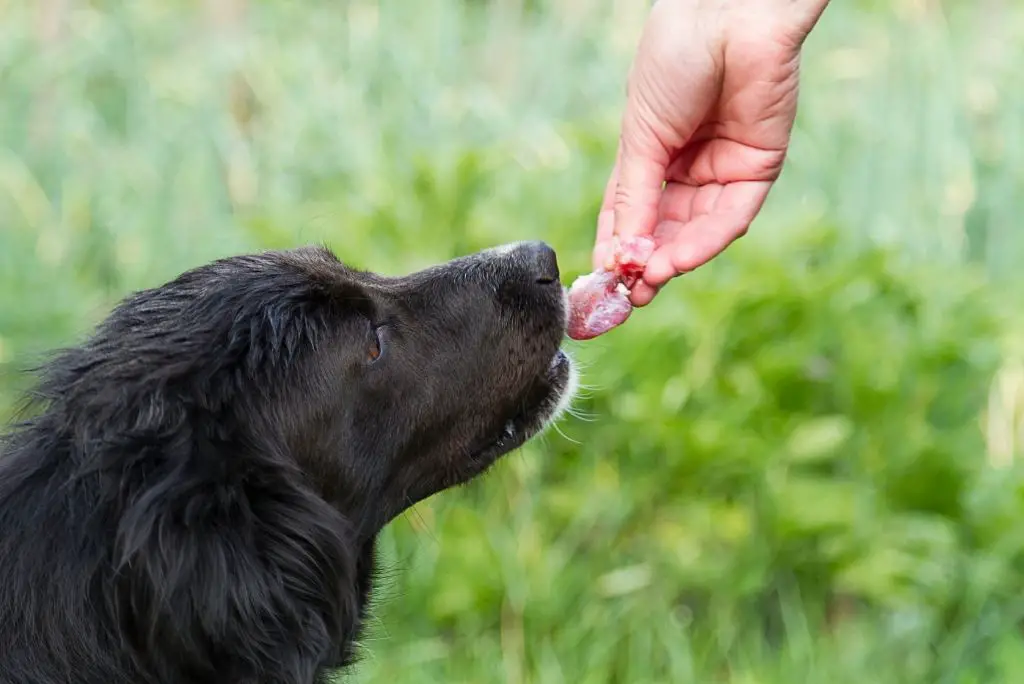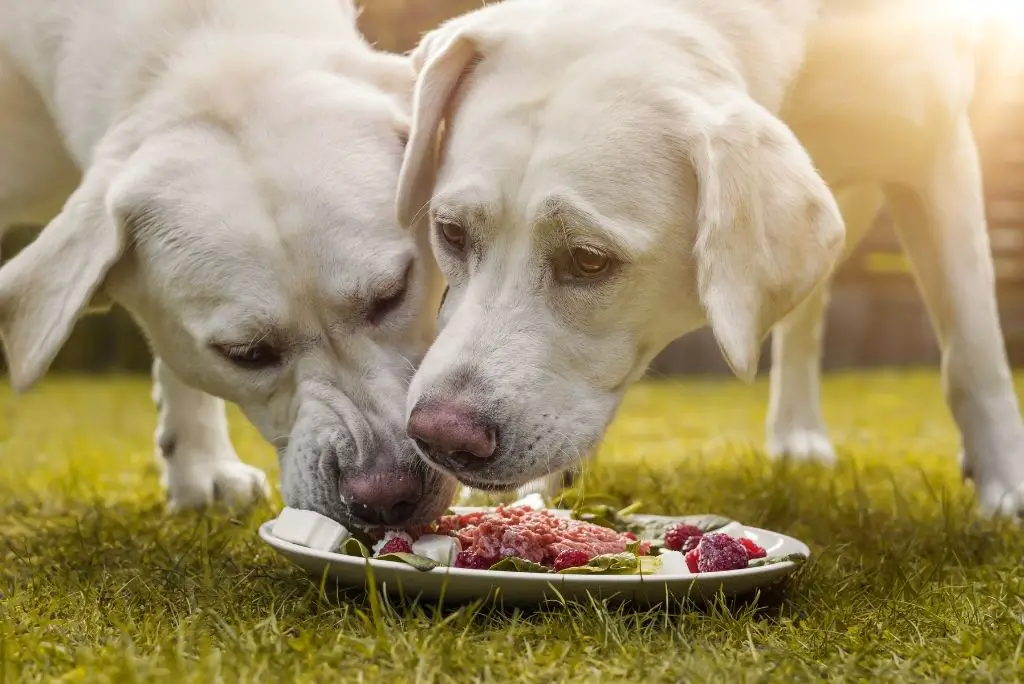Dog owners are always looking for ways to better care for their pets and, one of the most important ways in which they can achieve this is by feeding them a healthy and well-balanced diet. Although there are hundreds of kibble and canned dog food options to choose from, some dog owners have started to explore alternative diets that are based on raw meat. But is a raw meat diet good for dogs?
Some people believe that this kind of diet is more aligned with dogs’ biological needs but there are some downsides to it as well. In this post, you’ll learn about the benefits and risks of a raw meat diet for dogs. Regardless of what you take away from this post, be sure to always check with a veterinarian before making any changes to your dog’s diet. Especially when thinking about incorporating raw meat.

What are the benefits of a raw meat diet for dogs?
Before dogs were domesticated, their diet was just like what wolves in the wild still eat which is mostly made up of raw meat. Although dogs have evolved since then, some may argue that dogs’ digestive systems are designed to digest raw meat as their stomach acid is much stronger than the one we find in humans. This allows them to break down foods that humans aren’t able to safely consume.
Some of the benefits that drive owners to feed their dogs raw meat are:
- Healthier coat and skin: some owners suggest that feeding their dogs raw meat have resulted in a softer and shinier coat, and this can be explained by the fact that a raw meat diet has little to no carbohydrate filler and has plenty of fresh fat, protein and high levels of vitamin E and zinc. All of these components play a big role in keeping a dog’s coat looking healthy. However, most dog kibble food also adds vitamin E and zinc in order to achieve the same results.
- Improvement in medical conditions: although there needs to be further research to confirm this, some owners claim that raw meat helped their dogs control conditions such as diabetes.
- Better digestion: while kibble usually takes seven to nine hours to be digested, raw meat takes only one or two hours to digest which can result in a dog pooping less frequently which can be beneficial for some dogs with digestion problems.
- Maintaining a healthy weight and lean mass: also due to better digestion, raw meat diets can help balance a dog’s digestive system. As a result, this will help dogs lose or gain weight as needed.
What are the risks of feeding your dog a raw meat diet?
Raw meat diets also have some risks and, for some veterinarians, these risks tend to have a bigger impact and that’s why they’ll advise against it. Even veterinarians that advocate for a raw meat diet will recognize these risks and recommend caution. Some of the risks are:
- Raw meat can host bacteria: when raw, meat has a higher risk of being contaminated, because the heat used to cook it ends up destroying many of the pathogens that are likely in raw meat such as Salmonella. Although dogs are less susceptible to these bacteria than humans, they can still get sick from it and can spread infective spores. This can put your family at risk, especially if there are small children in the house.
- Dogs’ nutritional needs have evolved: although some people will argue that dogs are meant to eat raw meat by nature because they’re related to wolves, let’s not forget that they have evolved and so has their digestive system and nutritional needs. Dogs are now perfectly able to digest starchy foods and, some of them have developed food intolerances and allergies that can make them sensitive to meats found in dog food such as chicken and beef.
- Raw meat diets aren’t regulated: last but not least, the American Veterinary Medical Association (AMVA) states that raw pet foods have little to no regulatory oversight upon their production. Some studies have also found excessive vitamin A and D and low levels of calcium and phosphorus in these raw diets which results in unbalanced diets. Feeding dogs an unbalanced diet for extended periods of time can severely damage their health.
Making sense of it all
Raw meat diets have recently grown in popularity amongst dog owners that are looking to feed their dogs food that resembles what they would have eaten in the wild. But it’s important to remember that dogs have evolved and their digestive system and nutritional needs are different than the ones of their carnivorous ancestors.
Although dogs can eat raw meat it doesn’t mean that they should. If you’re interested in changing your dog’s diet to a raw meat diet, be sure to ask your veterinarian for help in reducing the risks mentioned in this post to help keep your dog healthy and your family safe.

